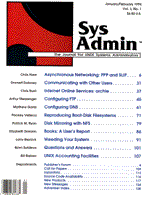Table 1: Options and explanations for /etc/ppphosts
The format of each dialout entry is
Name tty System [Timer options] [Link options] [IP options] [Other]
The fields inside [] are optional.
As with most UNIX files, entries may continue onto multiple
lines
using the backslash '\' continuation character.
Name is the name of the destination host. For
a login name, the name must start with an asterisk.
tty is the serial port which is used for a direct
connection. If the connection is established through
a modem, then
this field should be a hyphen.
system defines the entry which is used from the
UUCP Systems file in order to negotiate a successful login on the
remote host.
idle=min specifies the period after which the connection will be
dropped. The default is to never timeout. This is useful for shared
access lines, or where there is a long distance charge also associated
with the call.
tmout=sec specifies how long PPP will wait before deciding that the
remote side isn't there after sending a PPP protocol request. This
activity usually takes place during the initial link negotiation. The
default is 3 seconds.
conf=num is the number of configuration attempts that will be made
before deciding that a successful negotiation cannot be made. The
default is 10.
term=num defines how many times PPP will send a "link down"
notice before dropping the connection. The default is 2.
nak=num is the maximum number of no acknowledgment messages
which can be received before dropping the line. The default is 10.
mru=size sets the Maximum Receive Unit for the link. The default
for SCO systems is 296.
accm=(hex) represents the characters which will be escaped in the data
stream to prevent interpretation by the modem or serial drivers. The
SCO default is 0x00000000.
pap enables Password Authentication Protocol.
nomgc disables magic number negotiation.
protcomp enables protocol field compression.
accomp enables Address Control field compression.
ipaddr instructs that IP Address negotiation should be performed. This
means that the IP addresses for both ends could be set by one or the other
system. The SCO default is no negotiation.
rfc1172addr instructs PPP to use the IP Address negotiation described in
the original PPP RFC, RFC1172.
VJ enables Van J Acobson compression for the link.
old is an SCO-specific option, meaning that the remote side is using the
Interactive Software Release 4 implementation of TCP/IP.
paptmout=min is the time limit for the password authentication. This
time interval is specified in minutes.
rtscts sets the line to use the RTS/CTS hardware handshaking protocol.
|
